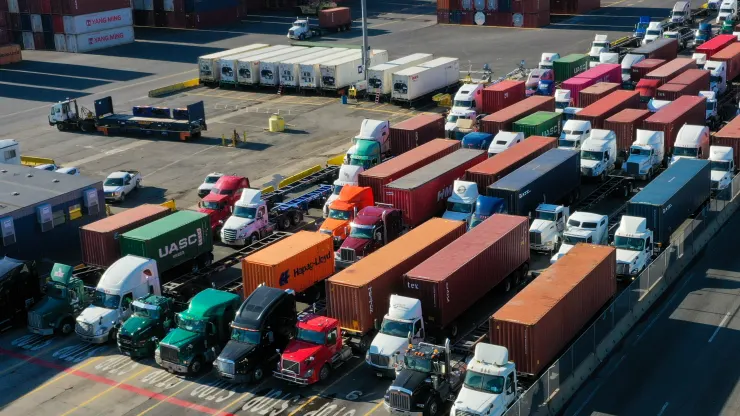Understanding Drayage Accessorial Charges: Common Scenarios and Costs
In the logistics and transportation industry, drayage involves the short-distance movement of goods, typically using trucks to transport shipping containers from ports to nearby warehouses or distribution centers. While drayage is essential, it often incurs additional costs beyond the basic transportation fee. These extra costs are known as accessorial charges. Here's a detailed look at what these charges entail and the most common scenarios where they might apply.
What Are Drayage Accessorial Charges?
Accessorial charges are additional fees for services or conditions that go beyond the standard drayage operation. These charges are applied for specific situations or extra services not included in the base drayage rate. The costs can vary depending on the logistics provider, the type of cargo, and operational complexities.
Common Drayage Accessorial Charges
- Demurrage Charges
- Scenario: Demurrage charges occur when containers are not moved out of the port or terminal within the allotted free time. Unlike detention, which applies to the period containers are held during pickup/delivery or during return, demurrage applies to the time containers are stored at the port or terminal.
- Typical Cost: Demurrage fees are typically charged on a per-day basis and can increase with the length of time the container remains at the facility.
- Detention Charges
- Scenario: Detention charges occur when a container is held beyond the allotted free time either during pickup, delivery or return. For instance, if a drayman is delayed picking up a container due to congestion or paperwork issues, detention fees may apply.
- Typical Cost: Detention fees are typically charged on a per-hour or per-day basis and can accumulate quickly if delays are prolonged.
- Per Diem Charges
- Scenario: Per diem charges apply when a container is not returned to the port or rail yard within the designated free time. If a drayman keeps the container longer than the allowed time, usually due to unforeseen delays or additional logistical requirements, per diem charges are incurred.
- Typical Cost: These fees are usually billed daily and vary based on the container size and the port or steamship line’s fee structure
- Reefer Charges
- Scenario: Reefer charges are applicable to containers that require refrigeration for perishable goods. If a refrigerated container is involved, there may be extra costs associated with operating and maintaining the refrigeration unit during drayage.
- Typical Cost: Fees include costs for power and maintenance and are added to the standard drayage fee.
- Chassis Rental Charges
- Scenario: Chassis rental charges apply when a separate chassis is needed to transport a container. If the drayage provider does not own the necessary chassis or there is a shortage, a rental fee for using the chassis may be incurred.
- Typical Cost: This fee is billed on a daily basis and varies depending on chassis type and availability.
- Overweight fees
- Scenario: Overweight fees apply if containers are over a certain weight threshold depending on the drayman’s agreed upon terms. Usually this is 44,000 lbs. Overweight shipments may require drayman to use specialized chasis or equipment that incur additional charges.
- Typical cost: Depending on the type of equipment needed, this may be a flat fee or per day fee.
- Liftgate Charges
- Scenario: Liftgate charges apply when a liftgate service is required to load or unload containers. This is often necessary for cargo that cannot be easily lifted by standard methods or when access to loading docks is restricted.
- Typical Cost: Liftgate services are billed based on the complexity and duration of the service.
- Gate Fees
- Scenario: Gate fees are additional charges for accessing the port or terminal. This may include fees for entering or exiting the facility, particularly if specific gate operations or security requirements are involved.
- Typical Cost: Gate fees can vary widely based on port policies and access needs.
- Container Cleaning Fees
- Scenario: Container cleaning fees are charged when a container needs to be cleaned before or after transport due to contamination or specific requirements from the consignee.
- Typical Cost: Cleaning fees depend on the extent of cleaning required and are billed as a one-time charge.
Managing Accessorial Charges
To avoid unexpected costs, shippers and consignees should:
-
- Understand Free Time Policies: Be aware of the free time allocated for containers at ports and plan to avoid detention, demurrage, and per diem charges.
- Coordinate with Providers: Communicate clearly with drayage providers about any special requirements, such as refrigeration or chassis needs, to anticipate additional charges.
- Review Contracts: Examine agreements with drayage providers to understand potential accessorial charges and how they might impact overall costs.
Understanding and anticipating these accessorial charges helps manage costs effectively and avoids surprises in the drayage process. Being informed and proactive can lead to smoother operations and more predictable logistics expenses.
Here at 1st Choice Freight, we have the industry knowledge to plan accordingly and dispute when necessary to minimize potential accessorial charges. Shipping is already expensive, help make it less expensive with the right industry knowledge!


